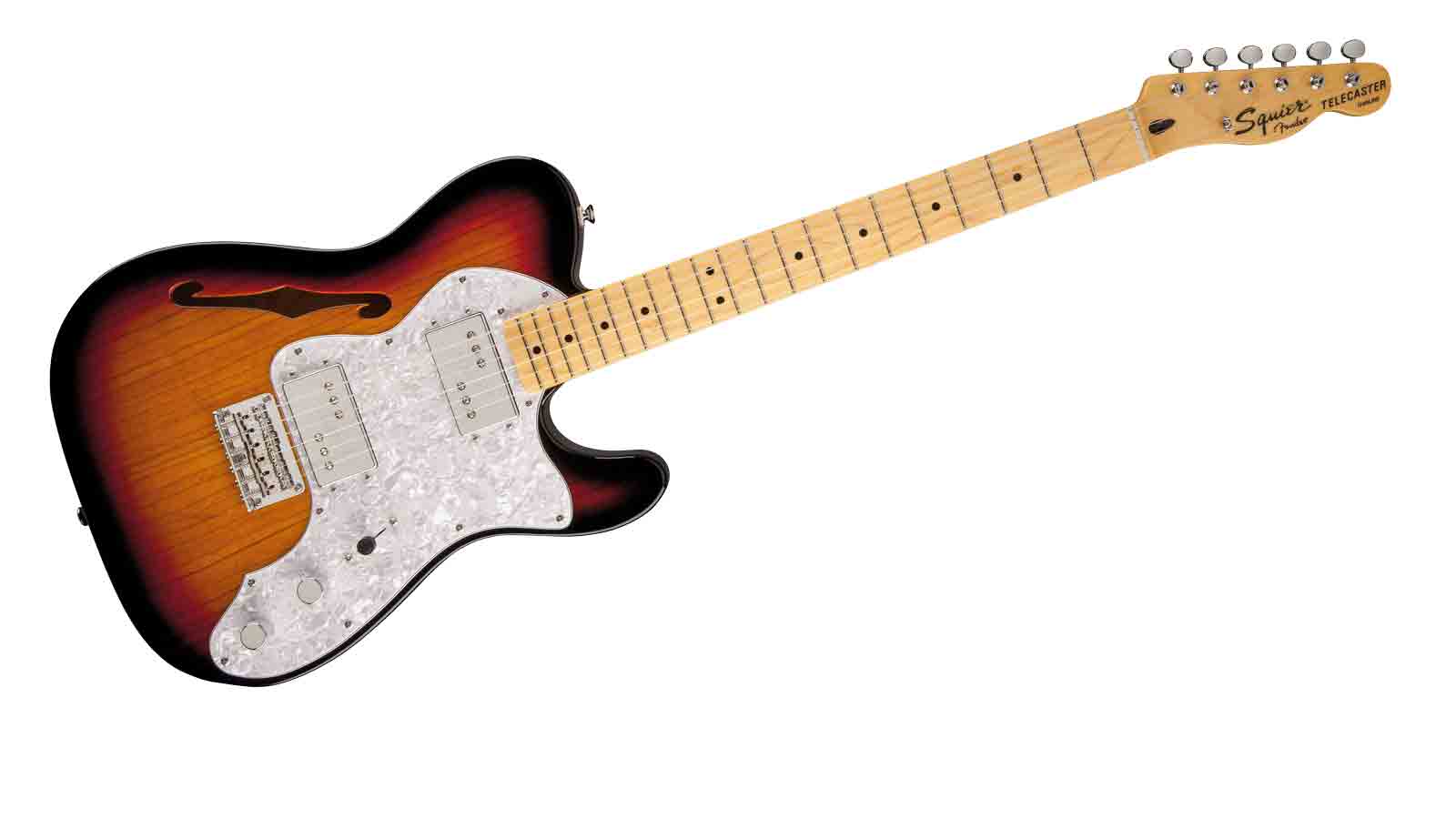MusicRadar Verdict
We can't fault the Thinline. Its price tag is seriously competitive, and considering the guitar's attention to detail and expensive-sounding tones, we implore you to give it a go.
Pros
- +
Fender Thinline tones at a Squier price. Nice attention to detail on the build.
Cons
- -
Not much.
MusicRadar's got your back
For a lot of players, 1972 was the year the Telecaster Thinline grew up; the model was originally introduced to bring down the weight of the Tele, following a shortage of Fender's go-to light ash bodies, but the addition of two Fender Wide Range pickups transformed it into its own entity.
"Cleans from the neck and middle positions are punchy and persuasive"
Squier has now seen fit to introduce the '72 to its own range, and it looks the business, with white pearloid scratchplate, finely carved f-hole and Fender- embossed humbuckers.
While you'll find the gloss-finished modern C neck across much of Squier's range, you're unlikely to find tones quite like the Thinline's anywhere else, certainly at this price.
Cleans from the neck and middle positions are punchy and persuasive, not dissimilar to fat P-90-ish single coils, but flicking over to the bridge humbucker yields a burly, resonant voice that screams for big open chords and an overdriven valve amp.
Whichever pickup position it's in, there's an open, slightly hazy midrange, which makes the Thinline just at home with fingerpicking as it is with big distorted powerchords - indie and alt-rock players will find plenty to like here.
Want all the hottest music and gear news, reviews, deals, features and more, direct to your inbox? Sign up here.
Mike is Editor-in-Chief of GuitarWorld.com, in addition to being an offset fiend and recovering pedal addict. He has a master's degree in journalism, and has spent the past decade writing and editing for guitar publications including MusicRadar, Total Guitar and Guitarist, as well as a decade-and-a-half performing in bands of variable genre (and quality). In his free time, you'll find him making progressive instrumental rock under the nom de plume Maebe.

